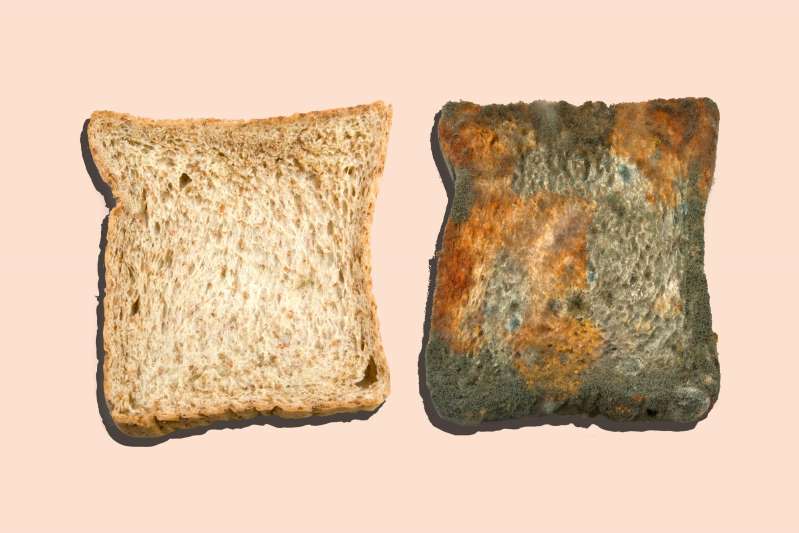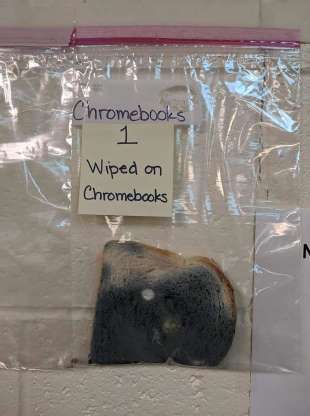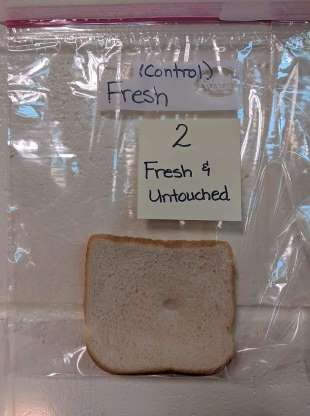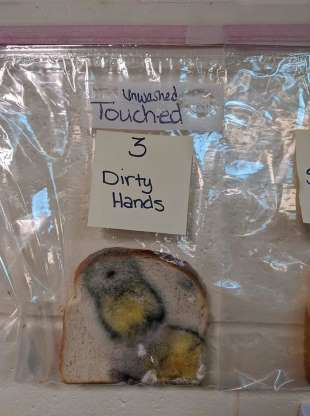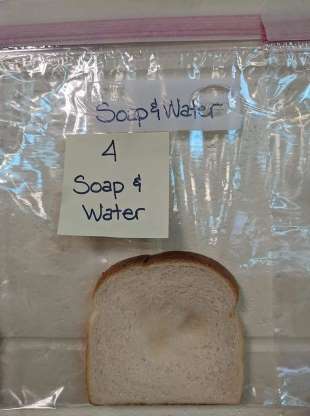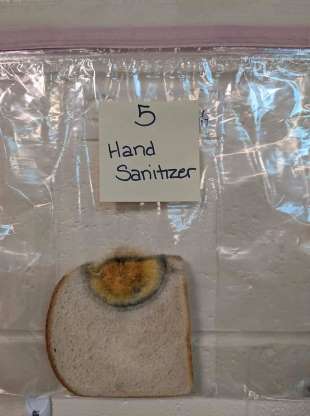Classroom Experiment Shows the Importance of Hand-Washing — Just in Time for Flu Season
Flu season is in full swing. The CDC is reporting that 30 states—especially southern states like Texas, Louisiana, Mississippi, Tennessee, Alabama, Georgia, and South Carolina—are already seeing flu activity. A preliminary estimates report states that there have already been 1.7 million to 2.5 million flu illnesses nationwide between October and November. Thankfully, there are measures everyone can take to keep the virus at bay. And a science teacher from Idaho is spreading awareness with a jaw-dropping post that has gone viral.
Jaralee Annice Metcalf shared photos of a science project she did with her class, writing alongside a series of photos, “We took fresh bread and touched it. We did one slice untouched. One with unwashed hands. One with hand sanitizer. One with washed hands with warm water and soap. Then, we decided to rub a piece on all our classroom Chromebooks.” The result: “So DISGUSTING!!!”
Metcalf pointed out that yes, the school typically sanitizes the Chromebooks but didn’t for this experiment, the results took three to four weeks due to the bread’s preservatives which extend shelf life, and the bread was placed in tightly-sealed freezer Ziploc bags.
“If the bread had been exposed to air and moisture, the experiment may have gone faster,” Metcalf tells Parents.com. “The breads that were very clearly exposed to different germs grew mold quicker. And ones touches by clean hands plus the soap and water ones were not exposed to the germs that cause the mold growth to quicken.”
In her Facebook post, Metcalf identified herself “as somebody who is sick and tired of being sick and tired of being sick and tired and urged followers to wash their hands” and urged her followers to wash their hands, remind their kids to wash their hands, and to remember that hand sanitizer is not an alternative to washing your hands.
She pointed those interested in doing the experiment themselves to instructions provided on C.S. Mott Children’s Hospital’s website.
Since Metcalf shared the images, her post has earned over 59K shares and over 8K comments.
Ultimately, the science teacher hopes that parents not only better understand the importance of hand-washing but that they take the results into consideration when their child comes down with a bug. “Germs spread rapidly,” Metcalf tells Parents.com. “And it doesn’t matter how often they’re told or how well they’re taught to wash their hands, children won’t always do it properly or enough.” That said, when hand-washing fails, a sick day might be called for, which could preempt illnesses like the flu from spreading even further.


